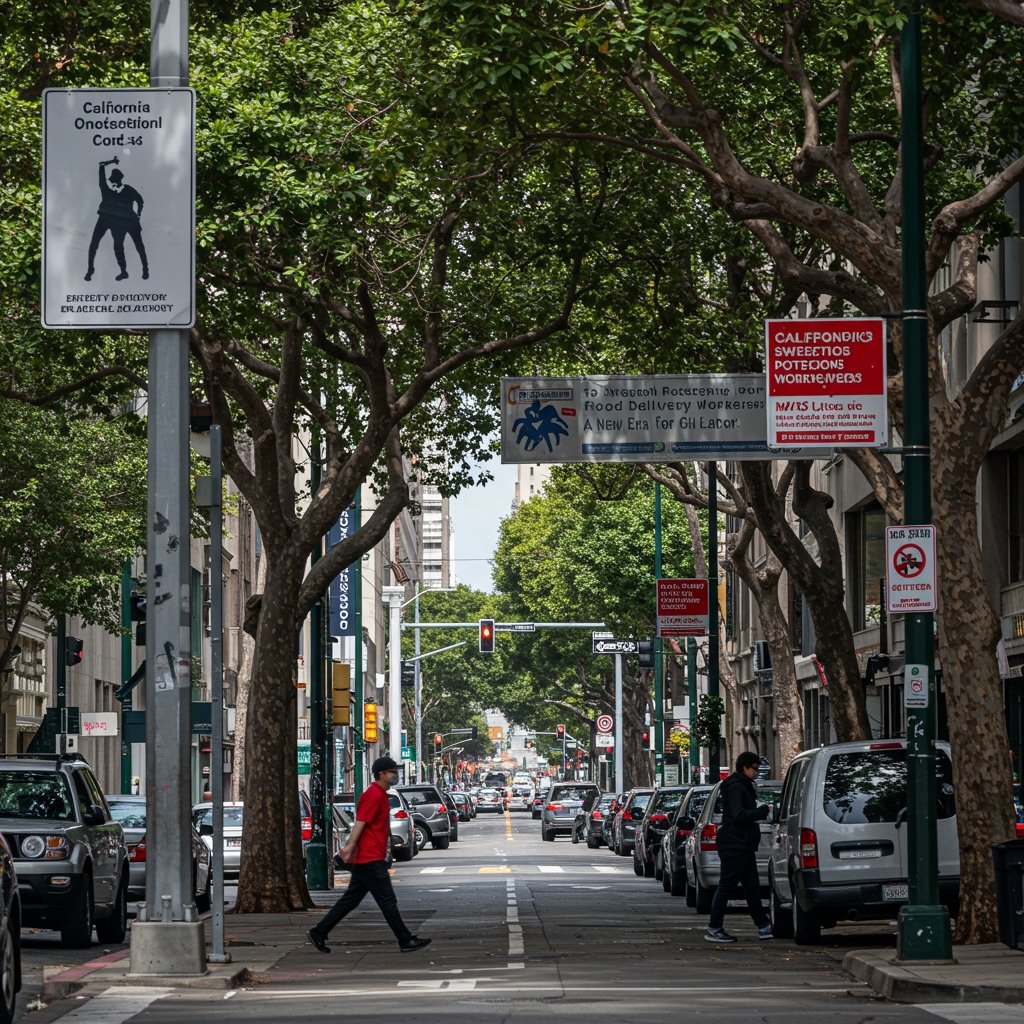California Ushers In New Era for Food Delivery Workers with Landmark Labor Law
SACRAMENTO, CA – In a significant legislative move poised to reshape the gig economy landscape, California Governor Gavin Newsom signed Assembly Bill 2025 into law on March 14, 2025. This landmark legislation establishes robust, new labor protections specifically for individuals working as food delivery drivers across the state of California. The bill mandates that major food delivery platforms, including industry giants like DoorDash and Uber Eats, must provide a suite of benefits previously largely unavailable to these independent contractors.
The passage and signing of AB 2025 represent a pivotal moment in the ongoing debate surrounding the classification and rights of gig workers. While platforms have long maintained that their drivers are independent contractors benefiting from flexibility, proponents of the bill argue that the nature of the work warrants greater labor protections akin to traditional employees.
Key Provisions of Assembly Bill 2025
AB 2025 introduces several key requirements that food delivery platforms operating in California must adhere to. Central among these is the establishment of a minimum hourly earnings standard for drivers. The law stipulates that platforms must guarantee earnings equivalent to 120% of the local minimum wage for the time a worker is actively engaged on a delivery, from accepting an order to completing the drop-off. This provision aims to provide a more predictable and equitable income floor for drivers, addressing concerns about low pay during peak hours or long waits between orders.
Beyond the minimum earnings standard, the bill also mandates that platforms provide a healthcare stipend. This stipend will be based on the number of hours a driver works, offering some financial assistance towards health insurance costs – a significant concern for many gig workers who lack employer-sponsored coverage.
Furthermore, AB 2025 guarantees paid sick leave for food delivery workers. This provision allows drivers to take necessary time off when they are unwell without losing their entire income, promoting public health and providing a safety net for workers facing illness.
These benefits collectively aim to improve the economic security and well-being of thousands of food delivery workers throughout California, a workforce that has become increasingly essential, particularly following shifts in consumer behavior over recent years.
Reactions and Analysis
The signing of AB 2025 has elicited strong reactions from various stakeholders. Proponents of the bill, including organizations like the Gig Workers Union, have hailed it as a necessary and long-overdue step towards recognizing the rights and contributions of food delivery workers. They argue that these essential workers deserve fundamental protections like minimum pay, healthcare support, and sick leave, asserting that the previous model exploited workers by offloading business costs onto individuals.
Conversely, opponents, including groups such as the California Restaurant Association and the affected tech companies themselves (DoorDash, Uber Eats, etc.), have voiced significant concerns. They warn that the new mandates will inevitably lead to increased operational costs for platforms. These costs, they contend, will likely be passed on to consumers through higher delivery fees and potentially impact local restaurants relying on these services. Opponents also argue that the bill could inadvertently reduce the very flexibility that many drivers value, potentially leading to fewer work opportunities or more rigid scheduling models as platforms adapt to the new cost structure.
The debate mirrors broader national conversations about the future of work and the classification of labor in the digital age. While AB 2025 offers a model for providing benefits within the existing independent contractor framework (unlike some previous attempts to reclassify workers), its implementation and long-term effects on the market, consumer behavior, and driver flexibility remain subjects of keen observation and analysis.
Implementation and Future Outlook
The provisions of Assembly Bill 2025 are scheduled to take effect on January 1, 2026. The intervening months are expected to involve significant efforts by food delivery platforms to adapt their operational models, payment structures, and administrative systems to comply with the new requirements. Regulators will also be tasked with developing and implementing the specific rules and enforcement mechanisms necessary to ensure the law is effectively applied statewide.
The passage of this bill sets a precedent and could influence legislative efforts in other states grappling with similar questions about gig worker protections. Its success, measured by its impact on worker welfare, platform viability, and consumer costs, will be closely watched as California navigates this new chapter in labor relations for the gig economy.



















